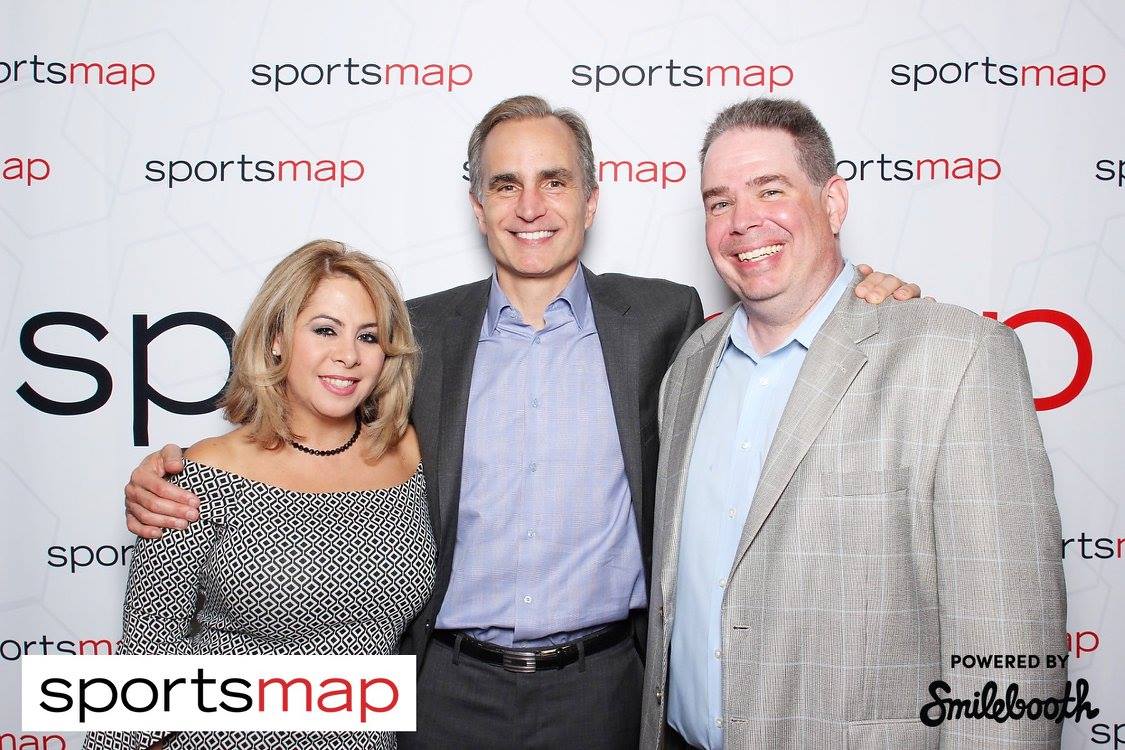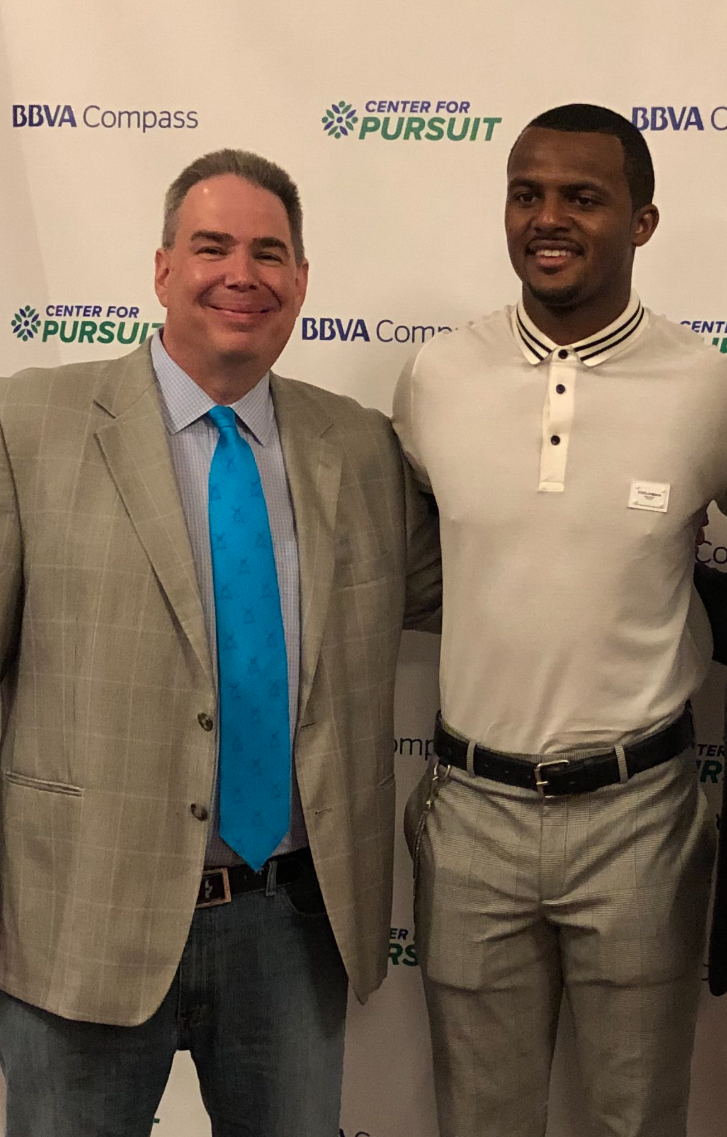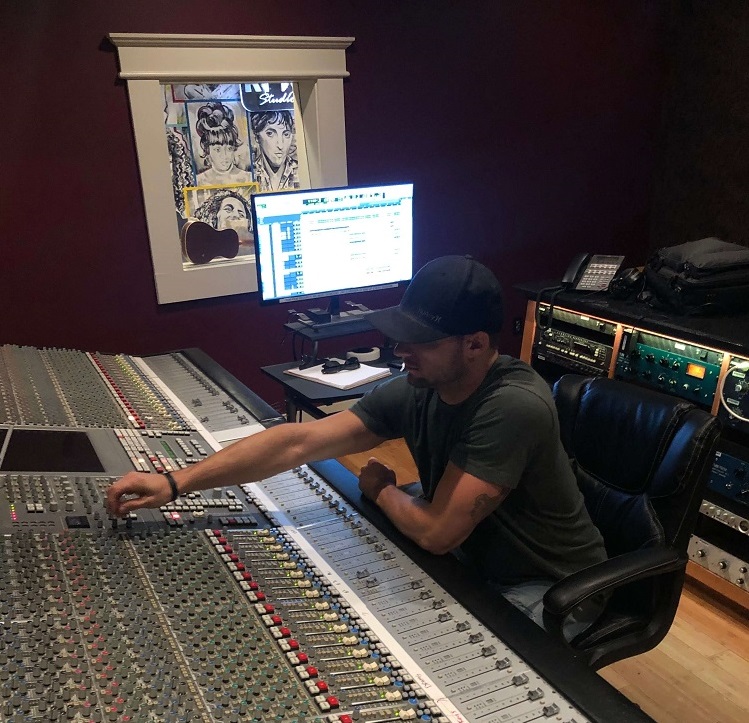
(On right) Craig Larson, COO, Esmeralda Perez, Office Manager & Continuity, and David Gow, owner and CEO of Gow Media
To say
Radio Connection mentor Craig Larson is the quintessential radio pro would be an understatement. With three decades in the industry—getting his start as an intern back in 1990—Craig knows radio. From reporting from the field as a sports reporter, to hosting and producing shows and segments, to station programming, working with affiliates, and more, he’s a professional who lives and breathes radio.
Today, Craig is the Chief Operations Operator of Programming and Affiliate Relations at GOW Media. Run by CEO David Gow, the powerhouse media company owns and manages several sports radio networks and media news outlets including SportsMap Radio Network, ESPN 97.5 FM (KFNC) and ESPN 92.5 (KFNC), Culture Map, Innovation Map, and more.
We recently spoke with Craig to learn more about how he got his start in radio, discuss his approach to mentorship, and to garner some real-world insights on building one’s career in radio today.
What got you interested in radio in the first place?
“So, I was the child with the transistor radio hidden under my pillow at night listening to and trying to pull in AM frequencies, Tigers baseball or St. Louis Cardinals baseball, or just general talk shows…. I fell in love with radio probably at the age of 10 or 11. It’s what I always aspired to do. At the time, my guidance counselors throughout grade school and high school and all that were like, ‘We don’t even know what to do with this or how you would go about developing a career in this particular field. You better have a backup plan.’ But I didn’t have a backup plan and just was always interested. And the minute I had an opportunity to actually walk into a station, I knew that’s where I belonged.”
Radio has seen many changes over the past few decades, and even the past five years. What can you tell us about radio today?
“I think a lot of it has actually been for the better in terms of overall just content consumption…. [Nowadays], your cell phone is almost like a hand-held transistor radio in its own right. You have the ability to download now in real-time, videos, play-by-play, podcasts, radio. And so I think the evolution overall of technology is one where you’ve had to calibrate how you go about the overall approach in populating content and what content is really going to stick and resonate with your audience.
They can’t all be three-hour podcasts or three-hour shows or long-form sports consumption. The idea is to get that content in front of as many eyeballs, and [get as many] clicks and downloads as humanly possible. So I think it’s evolved for the better. I mean content is king. At the end of the day, that’s the one word on the board that everything centers around. Everything is about content. Is it compelling? Is it unique? Is it customized and is it authentic? If you’re authentic and real with your audience and…can consistently deliver it…chances are your ratings will be up and all of your digital stuff will be up, and you’ll be doing pretty good.”
What’s the culture like in radio and media? What are you guys talking about? GOW Media sounds like a very vibrant place to be.

Craig Larson with Houston Texans QB, DeShaun Watson
“I think the great thing about
GOW Media is, and this has been a little bit unique… we have an owner and CEO [David Gow] that is engaged. He walks the floors. He’s not off on a golf course or in an ivory tower. He puts in 60, 70-hour weeks. He sets the tone for the organization from a work ethic standpoint and that has a predominant trickle-down effect to the management team, to the employees….
There is a spontaneous nature to the medium. That’s one of the great things is bringing that visual and vision to life on the radio airwaves. You’re almost artist-like in painting that narrative for the listener or the viewer. I think the bigger thing though is that we are an entity that just works. I mean we roll up our sleeves and we just get to work every day. We have fun in the process. We have a lot of passionate people and a lot of creative individuals from top to bottom that roll out of bed every day thinking about content which is what it all gets back to.”
You’re operating at the top of the field as COO at GOW, so why choose to mentor with Radio Connection?
“It is a crash course [at an] accelerated pace. I have never had a student that doesn’t infinitely sound better week 11 relative to week 3. And they get energized by that progression, I get energized by it, the other mentors within our organization get charged up by all of that… There’s a real rhythm and pacing to it. It moves incredibly fast and the student’s progression is always notable…
I can’t tell you [the] number of references I’ve written, any number of letters of recommendation…[or graduates I’ve placed] with gainful employment here at GOW Media, or elsewhere, either with affiliate partners or just making inquiries on students’ behalf who have gone through the program, who have progressed, worked hard, have a passion and want to be in the industry.”
For those of us who know we want to work in radio or broadcasting, or even podcasting but we just don’t know where yet, how would you recommend we go about finding our way?
“I think that is something that I have always admired about the Radio Connection and the fact of just the overall availability. I mean the mentors are always available. It’s not like we’re off on an island and untouchable. And I know the Radio Connection folks are available, as well. So in terms of the perspective of the student, of what their money is going towards, I mean, they will have at the completion of the course not only an amazing demo and not only be positioned as a broadcaster or producer in their specific area of interest, they’ll have a lot of contacts and a lot of relationships….
I have a student coming in Monday and yes, we’re going to tour the facility, but she is going to spend 45 minutes with the owner and CEO Mr. David Gow. I mean, that’s how her journey is starting. She’s walking into a major multimedia company and sitting down and reaffirming what her interests are, what her passions are, and meeting directly with an owner, a prominent owner and prominent CEO of a business here in a huge market. So that’s how that journey will begin.”
One of your students, Regash Dosky, has been hired at a station in Nashville, Tennessee prior to graduating. What did he do right?
“I think the big thing with him was just full transparency from [him at] the outset. ‘This is what I want to do. Can you help me do it?’ And, ‘What do I need to do, Craig, to start taking those steps and taking those building blocks to get on the path to one day walk into a radio station?’ And so I think the biggest thing with him, and candidly, just with overall successful students in the past…this isn’t a side thing. This isn’t, ‘Well, we’ll get to the Radio Connection stuff when we get to it.’ He made a
real commitment from a time standpoint to work and work and work. We never missed a week.
[Now] he’s doing a little bit of everything. He’s producing. He’s hosting. He’s assisting shows with preparation and content and it’s been great to see his progression…. He’s on payroll there and he’s off to a great start.”
What, in your view, can Radio Connection students do to make most of their time in the program?
“I think the biggest thing is not to get too discouraged. I mean, I have guys that have been in radio for a while and, listen, it might take them six times in a side studio before they nail the perfect read for a commercial. I have producers where it might take them 15 times before Charles Barkley answers the phone and agrees to come on our network. So, this is an exercise in persistence. It’s an exercise in setting goals, having goals. That’s the other great thing about the program: every week there is a lesson, every week there is a goal, and every week you get critiqued and you also get a performance grade and see how you are trending and how you are building and developing. So, I think for the individual the input and the feedback is designed not to tear down or be over critical, it’s designed to help, and it’s designed to improve that individual’s overall performance.”
Want to learn how you can train with Craig Larson or any of the broadcasting professionals who mentor with Radio Connection?
Get started here.
* * * * *




